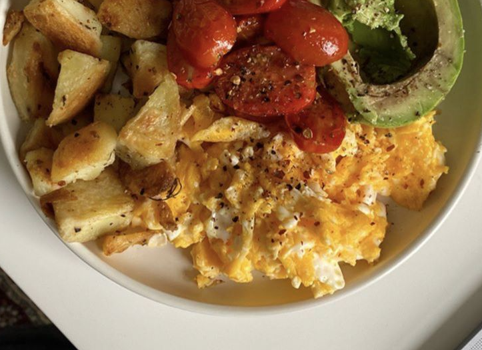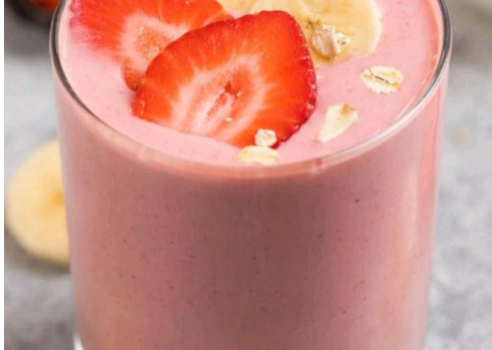The 5 Best Diets for Women Over 50
1. Best all-around: the Mediterranean diet
The Mediterranean diet is consistently rated as one of the healthiest eating patterns for almost anyone, including women over 50.
Based on the eating patterns of people in Greece and Southern Italy in the 1960s, this diet is characterized by its low saturated fat content. It primarily comprises vegetables, legumes, fruit, nuts, and whole grains, and it features olive oil as the primary source of added fat (1Trusted Source).
Although the Mediterranean diet is predominantly plant-based, it also includes moderate amounts of fish and dairy, as well as small quantities of eggs, poultry, and red meat.
Decades of research demonstrate that this diet reduces your risk of various chronic, age-related illnesses like heart disease, diabetes, cancer, and mental decline (2Trusted Source).
One study also associated the Mediterranean diet with a 30% reduced risk of obesity in peri- and postmenopausal women (3Trusted Source).
The Mediterranean diet outshines many other popular diets because of its flexibility. No foods or food groups are off-limits — even treats and red wine are allowed sparingly.
If you’re interested in trying it, check out “The 30-Minute Mediterranean Diet Cookbook” by Serena Ball, RD, and Deanna Segrave-Daly, RD.
2. Best for heart health: the DASH diet
According to the Centers for Disease Control and Prevention (CDC), heart disease is one of the leading causes of death for women over 50 (4Trusted Source).
What’s more, rates of high blood pressure — a major risk factor for heart disease — increase significantly after the onset of menopause (5).
The Dietary Approaches to Stop Hypertension (DASH) diet is designed to prevent and treat high blood pressure, also called hypertension (6Trusted Source).
It’s characterized by its low sodium content and emphasis on foods rich in calcium, potassium, and magnesium, which are known to help reduce blood pressure.
Sodium restrictions vary depending on your personal needs. While some people limit their sodium intake to no more than 2,300 mg per day, others go as low as 1,500 mg. Both numbers align with the American Heart Association’s sodium recommendations (6Trusted Source, 7Trusted Source).
The DASH diet mainly comprises vegetables, fruit, and low fat dairy, followed by moderate amounts of whole grains, legumes, nuts, seeds, fish, and poultry. Red meat and sweets are generally discouraged but allowed occasionally, and processed or cured meats are banned.
Limiting salty, ultra-processed foods in favor of nutrient-dense, whole foods offers additional benefits, such as reduced cholesterol and improved blood sugar control (6Trusted Source).
To get started, check out “DASH Diet for Two” by Rosanne Rust, MS, RDN, LDN.
3. Best plant-based: the Flexitarian diet
The Flexitarian diet is a semi-vegetarian plan that’s predominantly plant-based but occasionally includes meat, eggs, dairy, and fish (8Trusted Source).
This eating pattern is currently most popular among women who are reducing their intake of meat for health, animal welfare, or environmental reasons (8Trusted Source).
The Flexitarian diet is a great option for anyone interested in boosting their intake of fiber and plant protein who also recognizes the nutritional value of animal products and wants to eat them as needed.
The Australian Longitudinal Study on Women’s Health suggested that strict vegetarians and vegans are at a greater risk of insufficient intake of nutrients like iron and omega-3 fats, which are important for women’s health (9Trusted Source).
Compared with such strict diets, the Flexitarian diet provides more iron and omega-3s from foods like red meat and fish. It also tends to be higher in calcium — an important nutrient for preserving bone health in postmenopausal women (8Trusted Source).
Early research suggests that this eating pattern offers additional benefits for body weight, heart health, and diabetes prevention (8Trusted Source).
To try it yourself, check out the Flexitarian cookbook “Mostly Plants” by Tracy, Dana, Lori, and Corky Pollan.
4. Best for brain health: the MIND Diet
Age and sex are primary risk factors for dementia, the prevalence of which is significantly greater in women than men. In fact, roughly two-thirds of people with Alzheimer’s disease — the most common form of dementia — are women (10Trusted Source).
The MIND diet was developed to reduce the risk of Alzheimer’s disease and other types of age-related mental decline.
MIND is an acronym for “Mediterranean-DASH Intervention for Neurodegenerative Delay.” As the name implies, it combines elements of the Mediterranean and DASH diets that have been shown to support brain health.
It emphasizes foods like whole grains, berries, leafy greens, beans, olive oil, and fatty fish. Fried foods, red meat, butter, cheese, and sweets are discouraged.
Multiple studies have found that the MIND diet reduces dementia risk. While people who follow the diet closely have the greatest reduced risk, even those who adhere only moderately may still experience a slower rate of mental decline (11Trusted Source, 12Trusted Source, 13Trusted Source).
To get started, check out “The MIND Diet Plan and Cookbook” by Julie Andrews, MS, RDN, CD.
5. Best for women who are fed up with dieting: intuitive eating
If you’ve tried countless fad diets and are ready to ditch the dieting cycle for good, intuitive eating may be the perfect fit.
Chronic restrictive dieting may lead to a variety of adverse effects, including bone loss, rebound weight gain, disordered eating, and diminished quality of life (14Trusted Source, 15Trusted Source, 16).
Intuitive eating is an anti-diet program designed to reform your diet mentality and build a positive relationship with your body and the foods you eat. It was created by dietitians who claim that chronic dieting causes physical and psychological harm.
Intuitive eating comprises 10 foundational principles based on concepts like making peace with food, honoring your health, and coping with your emotions without the use of food.
No foods are banned, and no rules regulate portion sizes or meal timing. Instead, the goal is to help you relearn how to listen to your body’s natural hunger and fullness cues so that you no longer depend on a particular diet to nourish yourself mentally or physically.
A recent study tied intuitive eating to improved psychological health and a reduced risk of disordered eating (17Trusted Source).
Additional research suggests that those who follow this plan may be more likely to maintain a healthy weight, though it’s worth noting that weight loss is not the goal (18Trusted Source, 19Trusted Source).
If you’re interested in this approach, you can check out the official guidebook “Intuitive Eating” by Evelyn Tribole, MS, RDN, and Elyse Resch, MS, RDN.




